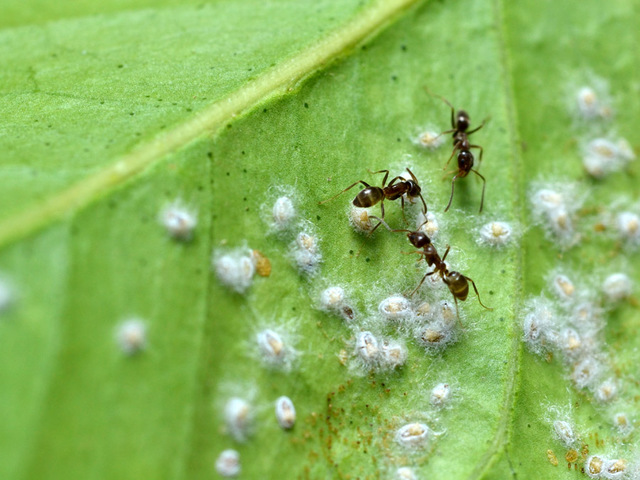Loreen asks: I am putting in a new garden and want to know what problems might arise, how to prevent them and how to treat them if they occur. ADVERTISING Loreen asks: I am putting in a new garden and
Loreen asks: I am putting in a new garden and want to know what problems might arise, how to prevent them and how to treat them if they occur.
Tropical Gardener answer: Now is a good time to get your plants healthy enough to resist the disease and insect pressure that comes with our warmer, wetter spring and summer weather.
1. Plant for future health. Dig holes that are twice as big around as the pots and the same depth. Water the hole before you plant to be sure it drains well. Be careful not to bury the “crown” of the plant. Keep the soil line at the same level as it is in the pot. Put at least 1/3 organic matter and some phosphorus fertilizer in the planting hole. Apply mulch in the root zone of the new plant to encourage soil microorganisms.
2. Water new plants every other day for a week, then cut back gradually. Keep them adequately watered during dry months until rains can provide sufficient moisture. Apply some organic fertilizer. Less is better than more.
3. Monitor your plants for chewing damage. If you see shot holes, eaten edges or other signs of munching on the leaves, you may have slugs, snails, caterpillars or Chinese rose beetles feeding at night. Try slug bait for the gastropods, Bacillus thuringensis for the caterpillars and neem products and bright lights just after sunset to deter the beetle.
4. Look for sucking insects like aphids, whiteflies, scale, mealybugs, leaf hoppers or spider mites. These insects are killed on contact with soap and oil. Safer soap and neem oil work well mixed with water in a sprayer. Look online for identification of these insects and the proper mix of soap and oil. The spray will also kill predators like lady bugs so don’t spray if you see them.
5. Powdery mildew and sooty mold frequently appear on plants in Kona gardens. Powdery mildew has a grey dust-like appearance. Sooty mold is black. Both reduce photosynthesis in the leaves and should be treated immediately. A spray with two tablespoons of baking soda, two of oil and one teaspoon of liquid soap in a gallon of water is good against powdery mildew. Spraying weekly can control as well as prevent this disease. Sooty mold can be wiped off with a wet or soapy cotton glove. Because ants that are farming the sucking insects are part of the issue, put out ant stakes. Fungal diseases are also common in the tropics. Get a positive ID on the disease before seeking a solution. Several organic fungicides are effective and available locally.
Prevention is better than cure. Promote healthy plants by increasing soil health with the addition of compost and mulch. Avoid chemical products including weed killers that can reduce microbial activity in the soil and apply organic fertilizers occasionally. Provide adequate water but avoid overwatering. If you need more information on these suggestions, check online or call the local master gardener helpline on Tuesday or Thursday morning between 9 a.m. and noon at 322-4892. Good luck with your new garden.
Email plant questions to konamg@ctahr.hawaii.edu for answers by Certified Master Gardeners. Some questions will be chosen for inclusion in this column.
Diana Duff is a plant adviser, educator and consultant living on an organic farm in Captain Cook.
Farmer Direct Markets
Wednesday: “Sunset Farmers Market,” 2 p.m. to sunset at the north makai corner of the Kmart parking lot.
Wednesday and Friday: “Hooulu Farmers Market,” 9 a.m. to 2 p.m. at Sheraton Kona Resort & Spa at Keauhou Bay
Saturday: “Keauhou Farmers Market,” 8 a.m. to noon at Keauhou Shopping Center
“Kamuela Farmer’s Market,” 7 a.m. to noon at Pukalani Stables
Sunday: “South Kona Green Market,” 9 a.m. to 2 p.m. at Amy Greenwell Garden in Captain Cook
Tuesday through Saturday: “U-Pick greens and produce.” 10 a.m. to 4 p.m. Tropical Edibles Nursery, Captain Cook.
Plant Advice Lines
Anytime: konamg@ctahr.hawaii.edu
Tuesdays and Thursdays: 9 a.m. to noon at UH-CES in Kainaliu, 322-4892
Mondays, Tuesdays and Fridays: 9 a.m. to noon at UH-CES at Komohana in Hilo, 981-5199 or himga@hawaii.edu.



